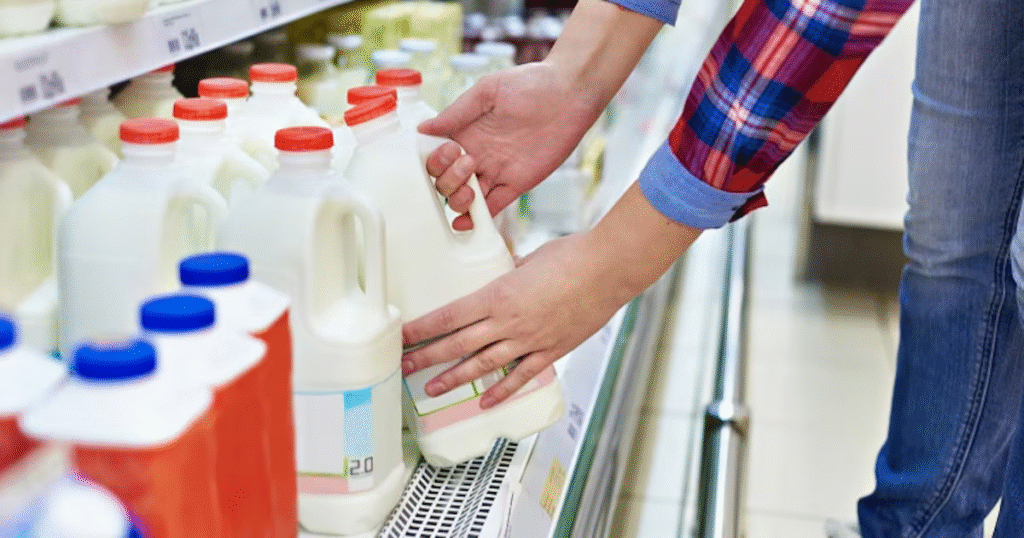
As plant-based milk alternatives continue to grow in popularity, a new contender is capturing attention: chia milk. Following the rise of almond, oat, and soy milks, chia-based milk is entering the spotlight—and it’s bringing serious eco-credentials and nutritional benefits with it.
🌿 Benexia Launches Chia Milk: A Sustainable Game-Changer
Health food innovator Benexia has officially launched Seeds of Wellness Chia Milk, a new plant-based milk made entirely from whole ground chia seeds. According to Vegconomist Global, the product is the first of its kind to offer both high nutritional value and a dramatically reduced environmental footprint.
“We harness the nutritional power of chia to deliver wholesome products … with human and planet health in mind,” said Benexia CEO Sandra Gilliot.
🥛 Why Chia Milk Stands Out Among Dairy Alternatives
Chia seeds are renowned for being rich in omega-3 fatty acids, dietary fiber, and antioxidants, making them a “super nutrient” according to the American Society for Nutrition—especially in a country like the U.S., where fiber intake is notoriously low.
Benexia uses a proprietary micro-milling process that keeps the seeds’ original nutritional profile intact while producing a smooth, creamy milk-like texture that’s ideal for smoothies, cereals, or drinking on its own.
🌍 Sustainability at Its Core: Farming and Production
What sets Benexia’s chia milk apart isn’t just nutrition—it’s the company’s commitment to sustainability at every step of the process.
According to its 2024 Sustainability Report, Benexia:
- Uses regenerative agriculture to support soil health and biodiversity.
- Relies exclusively on rainwater for chia irrigation.
- Implements a near-zero waste and water-efficient processing method, where water is only added at the final production stage.
This approach drastically reduces environmental impact, making chia milk a top choice for eco-conscious consumers.
🌾 Chia: A Drought-Resilient Crop for a Warming Planet
Chia is also proving to be a smart agricultural choice in the face of climate change. According to the U.S. Department of Agriculture Plants Database, chia is a relatively drought-tolerant plant, needing only minimal watering to thrive. That resilience makes it an ideal crop as extreme weather and water scarcity become more pressing global concerns.
📈 The Rising Demand for Alternative Milks
The timing couldn’t be better. Consumer demand for alternative dairy products continues to soar. A 2022 report from New Zealand’s Ministry of Foreign Affairs and Trade (MFAT) revealed that plant-based milk accounted for 20% of the revenue of traditional milk sales in North America, with 12% of U.S. households now favoring dairy-free milk.
Taste, sustainability, and health are leading the charge, according to MFAT. And chia milk fits all three pillars perfectly.
🔮 Industry Forecast: A Bright Future for Chia Milk
According to a 2023 analysis from the University of North Carolina’s PIT Journal, the alternative milk market is on track for a 127% growth in per capita revenue from 2014 to 2027. That meteoric rise reflects the shift in consumer habits—and the potential for chia milk to become a household staple in the near future.
As Benexia’s Seeds of Wellness Chia Milk rolls out to more markets, chia could take its place alongside oat, almond, and soy as one of the most popular plant-based milk options available.
📌 Conclusion: A New Era in Eco-Friendly Nutrition
With a powerful combination of health benefits, sustainability, and climate resilience, chia milk is poised to revolutionize the alternative milk category. As the public grows more conscious of their food’s environmental and health impacts, Benexia’s chia milk stands out as a smart, forward-thinking choice.
For those looking to make eco-conscious, nutrient-rich swaps in their daily diet—chia milk may be the next big thing in your fridge.

